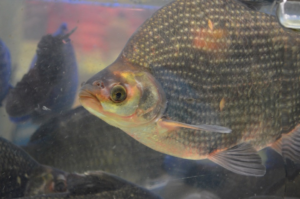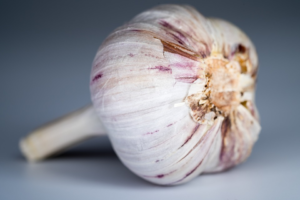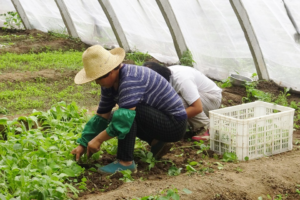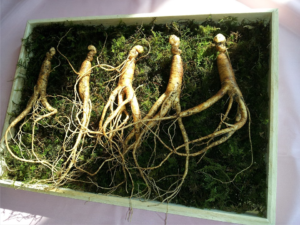According to the United States Food & Drug Administration (FDA), China is an important source of food imports in the U.S. If so, trouble may loom ahead! Pollution affects 70% of their rivers and lakes with waste from chemical and textile plants, making it impossible to raise safe food. Some Chinese believe nothing can be done about it. They also believe that Chinese government officials possess their own private farms to assure the safety of food they eat and believe their government lies about food safety. We know that Chinese food exports are a hazard to our health.
You may recall back in 2008 when 6 Chinese babies died and 300,000 children became ill with serious kidney problems after consuming baby formula tainted with melamine. You may remember melamine as the source of tainted pet food back in 2007. China added industrial chemicals to raw milk to help raise the protein content for babies. That problem became more widespread with melamine being found in other foods, as well as in Beijing restaurants.
Officials linked meningitis outbreaks to snails served in Beijing restaurants. Toxic dye showed up in duck feed and chili sauce. Widespread food poisoning appeared in Chinese schools and more. They even used industrial bleach to whiten noodles people ate.
This country does not keep humane controls on food sources for their own people, yet they export food to the level of being called an agricultural powerhouse.
Chinese Exports to Avoid
Scary Problems with Chinese Fish

China exports large amounts of fish. Eighty percent of the Tilapia and 50% of the cod consumed by Americans comes from that country. Tilapia, a fast-growing, farm-raised, tropical species of fish, surged in popularity in recent years and is now the 4th most consumed seafood in the United States after shrimp, tuna, and salmon. This easy-to-raise fish eats lower in the food chain, allowing profits to run high on exports.
Water Pollution a Huge Problem
The water pollution in China and Taiwan results in more chemicals being used in raising tilapia. The independent farmers, who raise fish, tend to use animal manure instead of commercial food for the fish. This contaminates the water, thus making the fish susceptible to disease and spreading food-borne illnesses. Tilapia are often raised in ponds with cages of chickens directly above them. The chicken waste goes into the water below, becoming food for the fish.
In a 2009 report from the FDA on safety of food imports from China, I read, “Fish are often raised in ponds where they feed on waste from poultry and livestock.” High levels of hormones used in cultivating fish, and strong antibiotics and hormones keep fish alive in crowded, dirty water.
Apple Juice a Surprising Problem
Apple juice presents another problem. Did you know that 50% of all apple juice sold in the United States comes from China? They use harmful pesticides, including some banned by the Chinese government. Obviously, there is little oversight on this industry.
Garlic from China Should be Avoided
Thirty-one percent of garlic sold in the U.S. comes from China. Again, pesticides are liberally used in the farming of their garlic, mainly methylbromide. China’s pollution problems and their soil cause concern, because of contamination with heavy metals, like arsenic and cadmium, and unhealthy amounts of pesticides and fertilizers.
How to Spot Chinese-Sourced Garlic

When you shop, look for garlic that has roots and a stem. China cuts those off before shipping to save money on weight. Safe garlic is heavier and more bulbous. Imported garlic from China weighs less. Garlic with a richer taste is likely from California, not China. The safest method is to buy from local farmers or grow your own.
Rice May Not be Rice
More in the news today is so-called plastic rice. Reports from Singapore suggest that China exports fake rice that stays hard when it’s cooked. It may actually be potato, sweet potato and plastic.
Avoid Chinese Salt & Pepper
Salt and pepper are suspect. A vendor in China was caught selling mud as black pepper. Salt produced for industrial purposes is finding its way to dinner tables. Any salt from China should raise a red flag. The industrial salt has the ability to raise blood pressure, upping the risk for a heart attack or stroke.
Pork Or Something Else?
Pork is cheaper than beef in China, so some restaurants sell pork as beef. They add a beef extract and beef glazing agent to the pork for a marinade. Long-term, this could cause slow poisoning, deformities, and promote cancer. If restaurants do this, who’s to say that exporters are not, as well?
Fake Sweet Potato Noodle?
Sweet potato noodles are made of corn with industrial ink used to give them a purple color and paraffin wax and exported.
Fake ginseng from China, made by boiling the roots of ginseng in sugar, becomes heavier and more valuable. This process strips ginseng of most of its medicinal values.
Chinese Green Peas May be Fake
Green peas from China, created with snow peas, soy beans, and green dye, also contain sodium metabisulfite. This chemical bleaches and preserves the product. The green dye may cause cancer. The fake peas do not soften when they are boiled and the water turns an unnatural green.
Fresh Vs Canned Mushrooms
Always buy fresh mushrooms. About 34% of canned mushrooms originate in China. They are subject to the same pollution and chemical contamination as other products because of waste from chemical and textile plants. Instead, buy safer, locally-grown organic mushrooms.
Other Chinese Products to Avoid
Reports from all over the world indicate salmonella tainted seafood, carcinogenic honey and poisonous food packaging, all from Chinese imports. Melamine continues to be found in food inside China, regardless of their food safety laws.

Quality Control Non-existant
Even though the Chinese government has quality control laws in place, there is no evidence of improvement in food safety. Their food processing plants are staffed by workers with little education who work for extremely low wages. These low-wage workers possess little knowledge of hygiene and sanitation, and it seems that no one enforces the laws.
Recent U.S. Law Allows “Chicken Game”
Even with the adulterated foods mentioned earlier in this article, our own government passed a law allowing manufacturers to play the “chicken game” with our health.
U.S. manufacturers now may ship their chicken to China for processing and packaging and then export it back to the United States to sell. Knowing the poor sanitation and hygiene, not to mention the chemicals used, how can we safely consume any food products from China?
Read the Labels!
Always check product labels before you purchase. If in doubt, call the manufacturer listed on the label and ask if the food or any part of it is sourced in China or anywhere outside the United States. Education is the key to good health.
